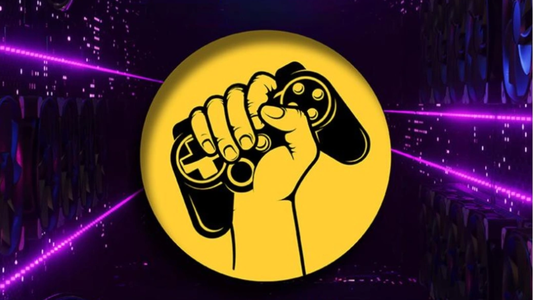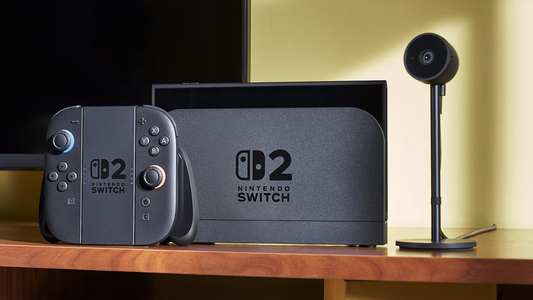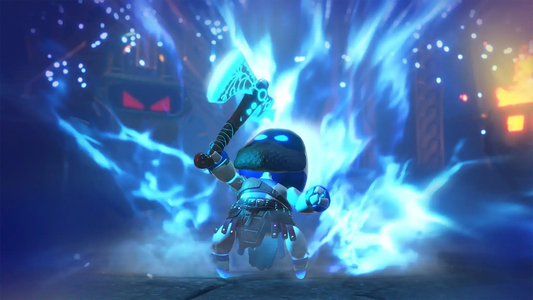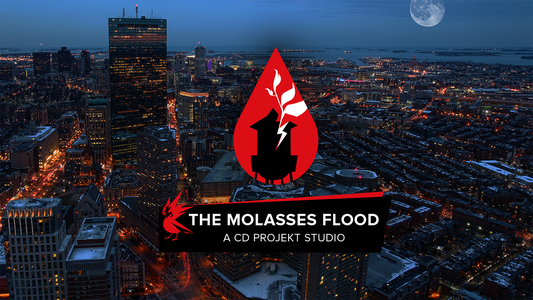Five years ago Eidos Montreal brought Deus Ex back to life with the release of Human Revolution, a game that was designed to (among other things) play with themes of transhumanism and why people make the choices they do.
Now the studio has released a followup, Deus Ex: Mankind Divided, that purports to show a possible way those choices could play out: a near-future where mechanically-augmented people are segregated from the rest of society.
In a recent conversation, executive narrative director Mary DeMarle told Gamasutra that Mankind Divided was written to "hold a mirror up to the world" and expose it. That's a notable challenge for any developer, and DeMarle says Eidos Montreal had to significantly change the way it operates and bring more writers in-house to produce the storylines, conversations and emails scattered throughout Mankind Divided.
From a certain perspective, that's actually the easy part -- the harder part comes in trying to reflect real-world issues in a respectful and meaningful way.
Mankind Divided's marketing initaitives have put a significant emphasis on the themes of segregation and discrimination that run through the game's narrative, referencing real-world issues like apartheid and the Black Lives Matter movement in their promotional campaigns. The game and its team have received significant criticism over this, and DeMarle says criticism is valuable -- when it's fair, and fairly delivered.
What follows is our full conversation about the art and effort of writing Deus Ex: Mankind Divided, one that sheds some light on how a game that treats with conspiracy theories, terrorism and fear is written in a time when the world seems awash in conspiracy theories, terrorism and fear.
How did your work on Mankind Divided change from your role on the previous game?
"What I'm often saying to the team is, our job is to hold a mirror up to the world. And expose it."
DeMarle: As the executive narrative director for the Deus Ex franchise, that basically means I'm in charge of all the story and all the narrative created for Deus Ex.
So for Human Revolution that meant I was the lead writer and led a team of writers. And on Mankind Divided I'm leading an even bigger team of writers, and working with all the departments to basically make sure that the story is infused throughout the game, or that the multiple stories get put into the game, as the player experiences them.
Sorry, where are my manners. How are you?
Good! It's quite hot today in Montreal, and it gets very humid on this coast. So I'm attempting to stay cool.
So what lessons did you learn from Human Revolution, and how have you applied them to this project?
Wow, that's a big question. Well, a lot has changed. We always kind of talked about doing Human Revolution, and we've said that when we did Human Revolution, we...we kind of had to be naive. And when we did the next game, which is now Mankind Divided, we'd have to have courage.
So we learned a lot; we had no idea what we were getting into, really, when we started Human Revolution. Just in terms of like, how do you reinvent the Deus Ex license; how do you reboot it. And from that game we did actually learn an awful lot. And when that game ended, we kind of said 'Okay, what did we learn from it?' You know, we always go through that process at the end of the game, to say what did we do right, what did we fail at, what did we want to fix. So we went through that, and some of the things we wanted to fix this time around are...well, now I'm forgetting a few, because I've been on vacation for about a month.
Oh, I didn't realize! Welcome back.
Thank you! So anyway, one of the things we definitely wanted to fix was boss fights. And we kind of just wanted to make some other improvements in the gameplay. We wanted to make the combat more visceral, more fun. Because we thought we got the stealth right on the last game, but the combat was a little lacking. So we wanted to make those pillars equal.
And then from a narrative perspective, we really wanted to go a lot deeper with story in the world. We still want to make the main story accessible, so you can play through the game and understand it; at a bare minimum, you can understand it. But also, the more that you dive into the world and the more you do sidequests, the more you're going to discover so much more to this world.

And we really wanted to push the choices farther, especially like for the branching of the narrative and like, for example, in a lot of the sidequests we really pushed so that you can end a sidequest in like, ten minutes based on your choices, or if you push farther you can actually discover new characters and added intricacies to the plot. And then some of those can actually come in and actually affect your critical path experience. So we really wanted to push a lot of that forward.
What does that mean for your workflow? It sounds like quite a bit more work -- how do you get it done in the scope of the game's production cycle?
From the narrative perspective, one of the things that happened was we...well, on Human Revolution we had a number of writers, but they were mostly all contract. Some of them worked in-house for the whole time, and we had one who was in London, but we had a lot who were just there for short periods and left.
So this time around we had a bigger in-house narrative team. We had a lot more writers, which suddenly meant a lot more managing of writers. And then to tackle the world and how much deeper and bigger we wanted to do it, we kind of had to split up and create new teams.
So for example, we had a sidequest team. We had a sidequest team on Human Revolution too, but it was really small. And here we had a much bigger team who really worked independently. They had one writer assigned to them and he dealt with a lot -- he basically wrote most of the sidequests. And yet he worked very closely with the sidequest designers, the implementers, et cetera.
We also had specific writers working on the debates -- the social boss fights, as we call them. We had a level designer who kind of headed up the environmental storytelling, so her job was to populate the Prague city hub with stories that were going on, come up with ideas and then work with the narrative team and the art teams, et cetera to get things dressed correctly, get emails to go in there, that kind of thing.
And like, the critical path was in the hands of certain people, and then we had what we called the "living, breathing world" team, and they were the ones going in and actually putting in all like, the monologues and the dialogues you overhear and stuff. So one of the ways we approached it is by putting people in charge of different things, and then my job was to ensure the consistency: to ensure that everyone was telling the right story, from different perspectives.
That's interesting. Do you think it's a good idea for studios to have in-house writers, rather than contractors?
It's funny, I've been in the industry now 20 years and my opinions on that continue to change and develop.
I definitely think it's very important to have writers in-house. If you're doing a very story-driven game, you have to have writers in-house. And the writers who are in-house will end up doing more than just the writing; they actually have to help implement and get their writing into the game. Get the dialogues into the game, from an under-the-hood perspective. Obviously they're not part of the sound team putting the actual .wav files in or anything, but still.
And by doing that, as a writer, I think you learn so much more. I've done both: I've done freelance and I've done in-house. And when you're freelance, you're living in the ideas of the story. Everything that you're putting down on paper you're believing is going in. But when you get into the actual creation of the game, you start to discover 'Wait a minute, it's not working out the way I envisioned it.' And it's a lot easier to get what you envisioned in correctly when you're working side-by-side with the level designers, and the level artists, and all of the other team.
Because it is a collaborative medium. In order to create the story, the world is telling the story. So having people in-house, having writers in-house, I think, is critical.
"If you're doing a very story-driven game, you have to have writers in-house. And the writers who are in-house will end up doing more than just the writing; they actually have to help implement and get their writing into the game."
Having said that, I still believe there are roles for freelance writers as well. I've always worked with freelance writers for specific aspects of things. Like, for example, all of what we call the "conspiracy DJ" recordings. All the radio recordings. That's something we gave to an outside contractor to write. We could give freelancers books and things. We could even give some of the critical path storyline dialogues to a freelancer, but they have to come through the hands of the narrative director, who is more in tune with what's going on, so they can make sure everything works correctly.
Was there ever a time you felt differently? What changed your mind?
I started in-house, then I quickly went freelance. But the reason I ended up going back in-house was because as a writer wanting control over the story, I felt I had none as a freelancer.
I wasn't present during initial meetings and I never understood why things would be changed. So when the final product would come out, I'd look at it and think, 'That's not what I wrote. Why did you change it?' And I wouldn't be privy to any of that. So that's really when I decided to go full-time in-house, and I've now been at Eidos more than ten years.
Would you recommend other big-budget productions retain dedicated in-house writing teams?
I do, but I also have to make a distinction: It depends on how story-driven your game is. If story isn't the main focus of your game, you certainly don't need someone in-house. You can have a freelance person who's very well-versed in the game industry to write it. But when it gets to be something like the kind of games I'm creating, where narrative infuses every aspect of the game, that's when you need somebody in-house.
No tags.





































